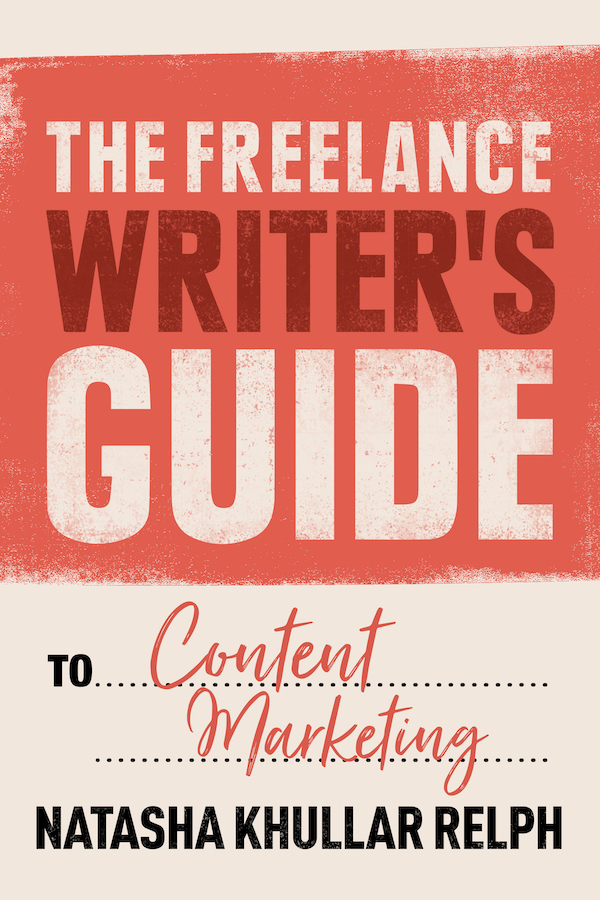
Happy Monday, writer friends,
Sometimes, I’m walking down the street, sitting by the sea, or walking by an art display and it takes me a minute to remember that I’m not on holiday, but that I actually live here. In beautiful Brighton.
I guess this is what home feels like.
Enjoy the issue!
Natasha Khullar Relph
NEWS & VIEWS
The shrinking bestseller
If you’ve noticed that you’re spending more on books because you’re reading them faster or that they’re taking less space on those bookshelves, it’s not all in your head.
Books, it turns out, are getting shorter.
A study based on bestseller lists published by The New York Times indicates that the average length of books on the NYT bestseller list has fallen 51.5 pages in the last decade, representing a decline of 11.8%. The probability that a book of more than 400 pages will enter the bestseller list fell by 29.5% in those years.
People also read longer books in the winter than they do in the spring and summer seasons.
The collective short attention span we’ve all been hearing about is to blame, of course, as is the abundance of entertainment options competing with reading time. And it’s not the first time we’re hearing statistics like this. In 2017, research from Book in a Box showed that while the average length of a nonfiction bestseller in 2011 was 467 pages, in 2017, it was 273.
Should this matter to you? Yes, most likely.
One, authors will often get pushback or rejections on shorter books from publishers, or asked to add more pages to keep with standard genre lengths. However, if trends in your genre are changing and readers are responding to shorter works, you need to bear that in mind.
Two, this is yet another indication that short and punchy writing will never go out of style. Writing short is more difficult than writing long, but if you can get proficient at sharp, lean writing, that skill will take you far. Maybe straight to the bestseller list.
SEE ALSO:
How to get rights to your books back: Everyone talks about the book deal, but what happens when you want to terminate your contract with your publisher and get the rights to your book back? It can get super complicated. Victoria Strauss talks about the process and the things to keep in mind.
Writing as a means of dealing with obsession: “I believe that most works of literature, and novels in particular, are seeded by a haunting, an event—or set of events—that stubbornly lodge in the author’s memory,” writes Steve Almond. And then he dives into literature we know and love to back up that theory.
WRITERS WANTED
We’ve added more publications to our How to Pitch list! Newly added guidelines include:
Tarbell (Reported pay $250-$700)
Nieman Storyboard (Pays $150-$400)
Nieman Reports (Pays $250 for opinion, $1-a-word for features)
The Reynolds Center (Pays $500)
Landscape Architecture Magazine (Reported pay $1-a-word for features)
The Financial Diet (Reported pay $250 for personal essays)
There are now 110 guidelines in our How to Pitch list. Check them out here.
THE WORDLING PICK
This book will help you understand the content marketing industry, where you fit in as a journalist, the pitching (and how it’s different), and the ethical considerations and boundaries you need to maintain if you want to continue being a journalist.
The Freelance Writer’s Guide to Content Marketing demonstrates how to make a real living writing copy you’re proud of for clients with cash.

WORDLING INSIGHT
Persistence isn’t just about sending your work out into the world, about knocking on doors, about proving yourself to other people.
Persistence is often about continuing to write even when it’s difficult, sticking with a piece of work even when it’s not coming together, and proving yourself to YOURSELF.
Persistence is the novelist who writes day after day, even when the book has been revised nine times and is still not working.
Persistence is the freelancer who keeps on researching and reporting stories, even when there is no sale on the horizon.
Persistence is the nonfiction book author who keeps on self publishing ebooks even when the numbers for the ones before aren’t impressive.
Persistence is the creative entrepreneur who keeps finding new ways to reach readers, even when many of them make her uncomfortable.
Persistence isn’t about doing things so that other people will recognize your effort. Persistence is about making that effort until your dreams are realized.
GLOBAL REPORT
UAE: In the UAE, TikTok is reviving a love of reading. BookTok inquiries have become so frequent that it is common for bookshops to create entire shelves and several display tables at the entrance of the store dedicated to books trending on the app, making it easier for customers to find them.
AUSTRALIA: Australia’s on the brink of losing a generation of authors, the Sydney Morning Herald reports. “Emerging writers used to be very reliant on the Australia Council to provide them grant funding,” literary agent Danielle Binks says. “But it just doesn’t exist [in the same way] anymore.” In the past financial year, the Australia Council gave out $4.7 million in grant funding to literature. This is around half the amount it disbursed a decade ago.
GERMANY: The Börsenverein des Deutschen Buchhandels, Germany’s publishers and booksellers association, has announced that the German Nonfiction Prize has entered a pilot program with Creatokia to offer the previous year’s winner and four nominated titles as NFTs, beginning May 23. “The impulses for this are provided not only by the nominated nonfiction books themselves but also by our desire as organizers to explore new forms and technologies,” says marketing and cultural projects chief Anne-Mette Noack.
QUOTE OF THE DAY
“The task of a writer consists of being able to make something out of an idea.”
– Thomas Mann
SHARE THE WORDLING
The Wordlings are discovering that editing books you haven’t looked at in a few years is a demanding job and requires not a cup, but a vat, of coffee. Share The Wordling with a writer you know is in editing hell.
or
Support us by buying us a coffee.
